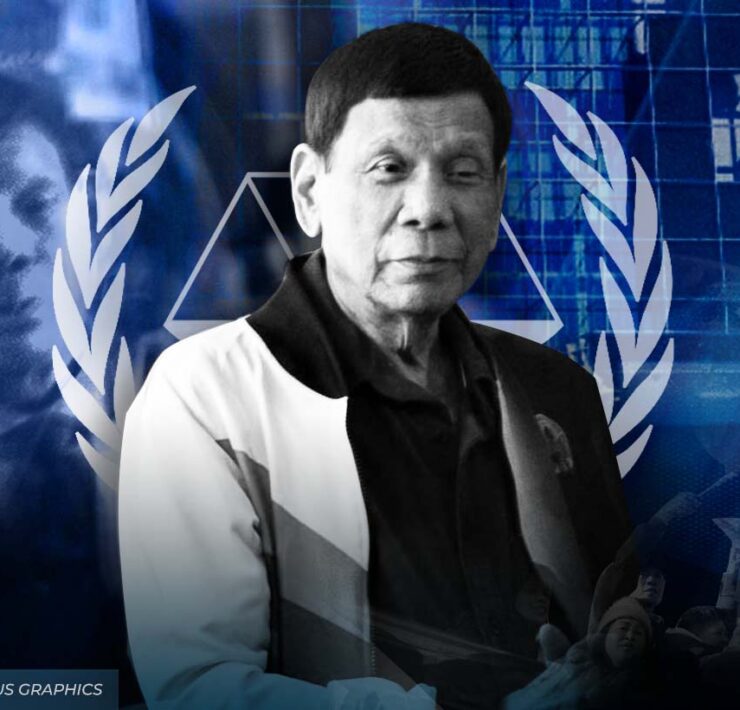A reckoning too long in coming

Ombudsman Jesus Crispin Remulla’s surprise announcement on Saturday about Sen. Ronald “Bato” dela Rosa’s impending arrest by the International Criminal Court (ICC) buoyed hopes that justice would finally be served the thousands of victims of extrajudicial killings (EJK) during former President Duterte’s vicious war on drugs.
“I have it on good authority … that the ICC has issued a warrant against Dela Rosa,” Remulla said in a radio interview. Duterte’s former police chief is widely seen as the chief implementer of Oplan Double Barrel, the bloody police raids that resulted in at least 6,000 summary killings of drug suspects under the previous administration.
Remulla’s announcement came two weeks after the ICC’s Pre-Trial Chamber upheld its jurisdiction over Duterte’s case, potentially paving the way for a full-blown trial.
But the prospect of Dela Rosa joining his patron at the ICC jail posthaste was quickly doused by firm disavowals by several government agencies and the ICC itself.
The Department of Justice and the Department of Foreign Affairs both said they were verifying the information.
Premature announcement
The ICC Office of the Prosecutor has meanwhile refused to comment on the issue, citing “confidentiality … to protect the integrity of investigations and ensure the safety and security of victims, witnesses, and all those with whom the office interacts.”
Such noncommittal response has raised questions on the motive of the Ombudsman’s premature announcement that could have given Dela Rosa time to flee. Was the Ombudsman’s optimism prompted by the need to lift the country out of its prevailing gloom in the wake of two catastrophic typhoons?
Whatever the reason, the fact remains that the arrest order faces procedural complications, making it more difficult to bundle off Dela Rosa to The Hague as the government did in Duterte’s case in March this year.
Already, legal experts have debated whether an arrest, surrender, or extradition would apply in this instance. Or even if Dela Rosa could be arrested while in the Senate premises, a prospect protested by Senate President Vicente Sotto III who stressed the need “to preserve the dignity of the Senate and as a matter of institutional courtesy.”
Arrest through the International Criminal Police Organization (Interpol), as was done with Duterte, will no longer apply either, Executive Secretary Lucas Bersamin said.
Principle of reciprocity
The Supreme Court’s new rules on extradition now “prior resort to a court before the subject may be brought out of the country,” he added.
The correct approach was stated by Chief State Counsel Dennis Arvin Chan who said the government has no choice but to comply when an arrest warrant is served by the Interpol. ICC Assistant to Counsel Kristina Conti noted that the high court’s extradition process involves requests made by a state to another state. Extradition is a matter between countries, but the ICC is not a country, she pointed out.
The process might be tedious and the options wide open, but in the end, the government has no choice but to comply with an ICC warrant, Chan said.
“Even if we may not be part of ICC anymore, we belong to an international community of nations. There is still that principle of reciprocity—the give-and-take arrangement—that governs relations among nations,” he added.
Prosecutor General Richard Fadullon also believes that compliance with the ICC order is inevitable, and that it would just be a matter of “determining the length of time when it would actually be implemented, depending on the route [taken].”
Reassuring words those, as the urgency of making Dela Rosa accountable for his crimes remains undisputed.
International scrutiny
But while an ICC warrant against the senator “is certain from what victims know and what the prosecution has presented,” Conti said it was “up to the Marcos administration to enforce his arrest and surrender as part of our continuing obligations to the court.”
The Senate should do its part as well, the rights group Karapatan said, instead of opening itself to accusations of “harboring a criminal.” It added: “There is no dignity in protecting those responsible for widespread killings, torture, and the criminalization of the poor.” Indeed.
Dela Rosa’s arrest or surrender is another step in the pursuit of justice for EJK victims and their families, while also confirming this administration’s repeated claim of us being a nation of laws. Such determined stance would surely burnish the country’s reputation recently battered by reports on massive corruption in flood control projects.
It’s time for Duterte’s tough-talking lieutenant to prove himself true to his earlier declaration that he was ready to face the ICC “any time,” as he has “no more fears” of international scrutiny.
Dela Rosa’s arrest would definitely go a long way to deter others who would disregard due process and uphold impunity. Those complicit with violence must now face the reckoning that’s been too long in coming.





















